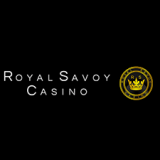
Gibraltar Licensing Authority Review
By Alex Smith Apr 12, 2024
Casinomeister's Verdict
Gibraltar offers taxation benefits for the casinos based there – and strict protections for the players who play at these casinos.
At one time, the GRA was one of the top licensing jurisdiction for online casinos. Unfortunately, they slipped down a bit since they seem to be only interested in keeping big name sportsbetting companies – they do not have the player in their best interest.
If you have a few hours, you can read an eye opening thread here: Finsoft/Spielo G2 Games Issue. It was about how some software vendors had uploaded defective games – it went on for a number of months until they made their statement here:
Announcement from the GRA concerning Hilo and ReelDeal games. Many of us were a bit disappointed that the GRA did not show much knowledge about the games and how they should be functioning. They were more concerning in catching out a fraud ring.
But and inferred from this case, the GRA does not really show interest in the players’ welfare of it’s licensees. Case in point: either they do not read the terms and conditions of their licensees (which I doubt), or they let rogue terms like this fly:
10.3
You agree that the maximum amount that You may withdraw is twenty thousand US Dollars ($20,000) (or the equivalent amount in EUR or GBP currency) every 30 business days. All amounts larger than twenty thousand US Dollars ($20,000) will be paid every 30 business days until the full withdrawal amount is reached. This condition also applies to winnings of progressive jackpots.
So the GRA is enabling Bwin to enforce these rogue terms. You can check out Bwin Rogue Casino for more info.

Pretty good but has some dodgy licensees
 Pros
Pros
Strong licensing authority who don’t allow rogue outlets to operate in their jurisdiction
Annual auditing ensures companies issued with a license maintain standards
The Authority doesn’t dish out licenses willy-nilly.
 Cons
Cons
Sometimes accused of getting too involved in matters such as bonuses and promotions
Said to be ‘out of touch’ when it comes to Source of Wealth requests - often providing unclear guidance to casinos and operators
Can take a while to impose clearly-beneficial changes and new regulations
Solid as a Rock?
Gibraltar is home to some of the world’s biggest online gambling companies, and while the country is actually a British Crown Dependency (meaning the United Kingdom is responsible for the vast majority of the foreign affairs of the country), Gibraltar does retain its independence in most legal areas, including taxation and online gambling regulation.
Known globally as being a ‘haven’ for online gambling, Gibraltar houses the world’s biggest number of gambling companies, and in this post we’re going to take a look at how the country regulated gambling, and who’s in charge of distributing licenses.
About The Gibraltar Licensing Authority
Gibraltar first began regulating online gambling back in 1998 – making them one of the leaders of online gambling regulation – and today, many companies choose to base their operations in Gibraltar, due to the lucrative taxation laws in the region.
When the country first started regulating gambling, the Gibraltar Regulatory Authority (known as the GRA) was initially responsible for the regulation. Later down the line, the GRA was then incorporated into the Gambling Division of the Government of Gibraltar – the same body that today, is responsible for online gambling regulation.
That being said, it’s actually the Gibraltar Licensing Authority which issues licenses to gambling businesses, and the Authority is known for being extremely strict with distributing licenses; they impose harsh license conditions, and regularly ensure that licensees are adhering to the license terms. We’ll cover the provision of acquiring and holding a license in the following section.
Provisions of a License
Before we look at the actual specifics of a gambling license issued by the Gibraltar Licensing Authority it’s worth noting that there are seven different types of license – all of which carry slightly different requirements.
These licenses include; a bookmaker’s license, a betting intermediary’s license, a gaming operator’s license, a gaming machine license, a lottery promoter’s license, a pools promoter’s license, and a remote gambling license.
The remote gambling licenses are what online casinos need to accept players – and this license type is the one that carries the strict rules and requirements.
For example, all operators who wish to hold a license must prove that their website/mobile app has sufficient technology in place to avoid underage gamblers joining. They must also provide a solid range of responsible gambling measures – this includes mandatory tools like self exclusion and time out periods.
Of course, like most of the world’s gaming regulators, there are also anti money laundering provisions in place – and annual reviews take place, to ensure that the license holders are sticking to the terms of their license.
The Authority is unafraid of taking action against rogue operators, and the annual reviews that we just mentioned are used to determine whether a license should be renewed for the following year or not. Below, we’re going to take a look at a few of the core areas that online gambling companies need to focus on if they want to receive a license from the GLA – and hold onto the license.
Advertising Guidelines
Whether it’s online casinos hosting online gaming companies’ games or sportsbooks, the licensing authority requires all of their licensees to follow strict (and non-negotiable) advertising guidelines – and here’s what the authority’s website has to say about the matter:
“The licensee shall ensure that all advertising, promotion and sponsoring activity of whatever type and through whatever medium (including the Internet) with regard to the gambling activities shall be truthful and accurate. It shall be exclusively targeted at adult players and shall therefore not be designed to appeal in any way to minors.
Licensees shall ensure that such Internet websites as are used to advertise, promote and/or operate its gambling activities shall not include links to other sites with violent or immoral content or that may be designed for access by minors. The licenses are issued on the basis that the advertising and promotion of gambling activities can only be directed to citizens of nations in which it is not illegal for such activities to be undertaken and that the licensee will not provide gambling activities to any person where the provision of such services by the licensee would be illegal under the applicable law.”
Prize Money Payouts
All of the online casino sites licensed by the Gibraltar Licensing Authority have to adhere to pretty strict protocols when it comes to paying out players their winnings – but what you may not know is that behind the scenes online gambling operators are held to even higher standards. For example, the Gibraltar Licensing Authority requires that all licensees have ‘adequate financing available to pay all current and reasonably estimated prospective obligations in respect of prize payouts’ – and this means they need to hold quite large cash reserves.
What’s more, the authority also requires online casino sites to hold cash reserves to ensure that they’re able to pay their gambling business obligations – which could, for example, include payments to affiliates or game developers and software providers.
Most financial aspects of online casino sites licensed by the authority need to be transparent so that specially-trained representatives from the authority can look through and make sure that the business is being run in accordance with the terms and conditions of the online gambling license.
Customer Privacy and Data Protection
The authority require all of the online casino sites and online gambling industry companies it licenses to adhere to very touch customer privacy and data protection standards – and they also require online casino sites to collect certain information about players; information which MUST be held on a secure server so that it’s not accessible to malicious third-parties.
Their website states:
“This shall include full name, residential address, and date of birth. Upon obtaining the required information and completing any due diligence arising there from, the licensee shall be entitled to deal with the customer as a registered player.”
Accounts and Auditing
The corporation will have complete control over the bank accounts into which any clients, cash, stakes, wagers, prizes, or other monies are received, kept, or paid out from. The company shall have complete and effective control over the functioning of any credit card merchant account that may be utilized in the course of its commercial operations.
There shall be no bank account or credit card merchant account maintained by the licensee in any jurisdiction other than Gibraltar, nor shall any funds or credit card transactions be received, processed, held, or cleared by the licensee in a Gibraltar licensed institution, without the prior approval of the Licensing Authority.
During the licensing period, the licensee will be expected to provide audited financial statements to the Licensing Authority on an annual basis, as well as to preserve its financial records in line with the applicable legislation at the time of submission. In addition, the licensee shall be obliged to comply with all of the accounting and reporting requirements set forth in the Companies Act and any other applicable laws.
Testing House Requirements
All online casinos that want to get an online gambling license from the Gibraltar Regulatory Authority must ensure that all of their games and online gambling products have been thoroughly tested and certified to be compliant with the rules set out by the Gibraltar Regulatory Authority – and the Gibraltar Regulatory Authority has 11 different testing houses that they have approved to take care of this task.
Some of the names on this list includes eCOGRA, iTech Labs and Gaming Associates – all big names that have been approved by many of the world’s other leading online gambling regulators like the UKGC and the MGA.
Remote Technical and Operating Standards
The Gibraltar Regulatory Authority has published in-depth guidance on what needs to be done by those wanting remote gambling licences – and if online casinos want to offer online gaming facilities they need to adhere to these remote technical operating standards.
Anti-Money Laundering Responsibilities
The Gibraltar Regulatory Authority sets out a large number of AML requirements that any gambling business – including online casinos – need to follow when they’ve been issued a license from the Gibraltar Regulatory Authority.
These are as follows:
- Operators need to ensure that proportionate enhanced due diligence is conducted on high depositing customers; irrespective of whether or not their losses are high.
- Operators need to have systems in place to identify sudden and significant increases in the velocity of transactions and for these incidents to be escalated to management for consideration.
- Operators need to have systems and controls in place to ensure adequate ongoing monitoring of customer accounts.
- Operators need to have integrated systems and communication channels between different functions (e.g. compliance, fraud and risk, customer services and VIP managers) to ensure all customer interactions can be considered in the round and not in isolation.
- Operators need to ensure that all staff are trained to a level commensurate with their role and that all customer facing staff understand both their AML and social responsibility obligations.
- Operators must properly risk assess all the ways in which customers fund their accounts for all channels (including peer to peer gambling) and carry out appropriate due diligence checks on all participants.
- Operators must report suspicious activity in a timely manner in line with their obligations under the Gibraltar Proceeds of Crime Act 2015 (POCA).
One of the Toughest Gambling Licenses To Receive
The Gibraltar Licensing Authority has always been notoriously strict about who they hand out online gambling licenses to – and they tend to only issue them to large companies with a strong track record in the online gambling industry. Below, we’ll look at an extract from the Gibraltar Licensing Authority’s website explaining this policy in greater depth:
“The Licensing Authority has traditionally only considered licensing blue chip companies with a proven track record in gambling in other jurisdictions. Nevertheless, the jurisdiction will also consider the licensing of appropriately funded start-ups and expanding operations proposing to relocate wholly or partly from other jurisdictions. Applicants, who might include those wishing to enter emerging non-EU markets, are expected to have a clear business plan where the source of legitimate funding can be clearly identified.
Licensees will be expected to establish proportionate substance in Gibraltar and make an economic contribution to the jurisdiction. The Licensing Authority understands the challenges around the need for multi-jurisdictional technology frameworks, including the use of cloud services and is prepared to work constructively on this issue with applicants. The jurisdiction remains a hub for both UK and international facing operators with a pool of remote gambling talent concentrated here.
Gibraltar is a business supportive, but well regulated jurisdiction, with political stability and a strong commitment to transparency and the rule of law.
The key principle in considering the licensing of operators is keeping crime out of gambling.
This means:
ensuring that those with a criminal history or with criminal connections do not own or control gambling businesses;
that potential licensees meet exacting fitness and propriety standards; and
that licensees are prepared to meet internationally acceptable anti money laundering standards and have appropriate measures in place to prevent terrorist and proliferation financing.
Applicants must be prepared to submit themselves to regulatory due diligence which focuses on establishing ultimate beneficial ownership and control of the business. This will include transparency around trusts and other structures. We will need to understand the corporate structure of the group of which the applicant is part.
Executive management will need to demonstrate their competence through a cogent business plan and also through proposals for effective governance, policies and procedures (including consumer protection and social responsibility).
Key individuals may expect to supply certificates of good conduct from jurisdictions in which they have worked or resided, or in which they retain nationality. Previous regulatory history will also be taken into account. Past offending of a minor, historical and non-material nature may not be a bar to licensing (or holding a key function), but the Licensing Authority will reject applicants (individual controllers or those from holding key management functions) if they fall short of the fitness and propriety threshold.
Outlining the economic benefits that applicants hope to bring to the jurisdiction including employment, rental of office space, use of Gibraltar technical infrastructure providers and future tax yield (PAYE, Corporation tax, etc.) is all relevant information which will assist the applicant.”
As you can see, the GLA don’t mess around – and in order for online gambling sites and online gambling businesses to receive a license from the gambling commissioner, the online gaming companies and online gambling operators have to prove that they’re trustworthy and have a significant amount of capital behind them.
Disputes and Player Complaints
Like most online gambling regulators, the Gambling Licensing Authority takes complaints from players – but as you’d expect, it’s not just a case of submitting your complaint to the Authority right away.
First and foremost, you’ll need to escalate your complaint through the online gambling operator directly. If your complaint is not resolved in this matter, you are then requested to approach the casino’s ADR (Alternative Dispute Resolution Service). The result given by the ADR is usually binding on the casino – but not you, as the consumer – so, if you’re unhappy with the verdict offered by the ADR, you can then submit a complaint to the Gambling Licensing Authority. This is done directly through their website.
 888 Casino
888 Casino
Ethically challenged predatory marketing
Ethically challenged predatory marketing
 Ladbrokes
Ladbrokes
Fleeces problem gamblers
Avoid this ethically challenged fleecing machine at all costs















 Top 5 casinos
Top 5 casinos 



















